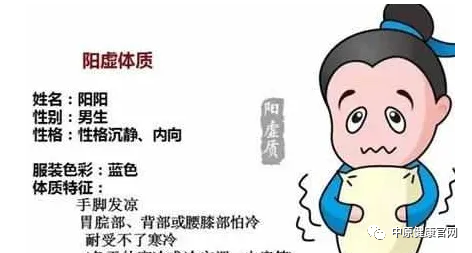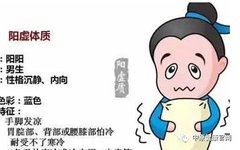1. Differences Between Yang Deficiency and Kidney Yang Deficiency
There are the following differences:
Yang deficiency is a term in Traditional Chinese Medicine (TCM) that primarily refers to the deficiency and decline of Yang Qi in the body, leading to reduced physiological functions, weakened metabolic activities, and low reactivity, resulting in a pathological phenomenon of insufficient Yang heat. Yang deficiency commonly manifests as deficiencies in Heart Yang, Spleen Yang, and Kidney Yang, thus Kidney Yang deficiency is a type of Yang deficiency. The main symptoms of Yang deficiency include aversion to cold, cold limbs, pale complexion, loose stools, clear and frequent urination, and a weak, deep pulse.
Kidney Yang deficiency, on the other hand, is primarily due to the decline of Kidney Yang, leading to inadequate warming and impaired Qi transformation, presenting a type of cold deficiency syndrome known as Kidney Yang deficiency syndrome. It mainly manifests as insufficient Yang Qi, with men often experiencing reproductive function issues.

2. Quick Remedies for Yang Deficiency
Individuals with Yang deficiency can adjust their condition through the following methods:
Those with Yang deficiency typically exhibit symptoms such as aversion to cold, cold limbs, and a lack of thirst. Lifestyle adjustments include avoiding cold environments, refraining from staying up late, and maintaining an early sleep schedule.
Additionally, engaging in moderate exercise can promote blood circulation, helping to invigorate Yang. Dietary recommendations for those with Yang deficiency include reducing the intake of cold and cooling foods while increasing the consumption of warming and Yang-supporting foods, such as lamb, durian, and ginger, to avoid harming the Spleen and Stomach Yang.
If symptoms of Yang deficiency are severe, moxibustion can be used for relief, as it can help to invigorate Yang Qi. Common acupuncture points for moxibustion include Dazhui (Du 14), Mingmen (Du 4), Shenzhu (Bl 23), Shenque (Ren 8), and Guanyuan (Ren 4).
Finally, for those with Yang deficiency, seeking treatment from a TCM hospital can help alleviate symptoms through professional care, including the use of Chinese patent medicines and decoctions.
3. Can Yang Deficiency Transform into Yin Deficiency?
It is possible.
In TCM, there is a potential for transformation between Yin deficiency and Yang deficiency. If both Yin and Yang are deficient, Kidney Yang deficiency can develop into Yin deficiency, and prolonged Yin deficiency can also lead to Yang deficiency. Therefore, it is understood that Yang deficiency can indeed transform into Yin deficiency.
For individuals with Yang deficiency, it is important to maintain health through proper lifestyle habits, a light diet, regular sleep patterns, and a positive mental state.

4. What Happens if Yang Deficiency Becomes Yin Deficiency?
The specifics are as follows:
Patients with Yang deficiency typically exhibit symptoms such as cold hands and feet, aversion to cold, or a preference for warmth and pressure. If they suddenly experience symptoms like lower back and knee weakness, tidal fever, and night sweats, it indicates a transformation to Yin deficiency.
Yin deficiency often suggests that Yang deficiency has led to insufficient Yin fluids, indicating a symptom transformation; at this point, attention is required, and treatment should be sought under a physician’s guidance.
If a long-term illness suddenly presents with symptoms such as thick, sticky sweat, or sweating like pearls, along with thirst and a preference for cold drinks, it often indicates that Yang deficiency has become externally obstructed by Yin, worsening the condition, necessitating immediate medical attention.

